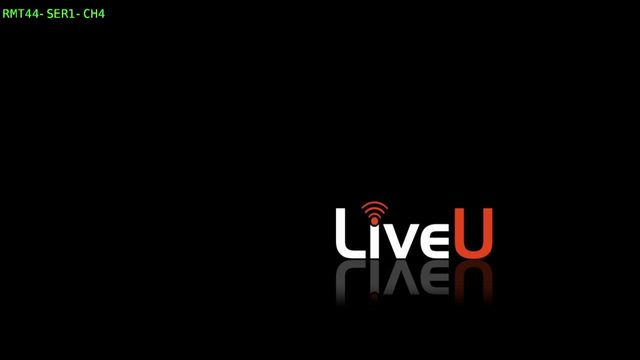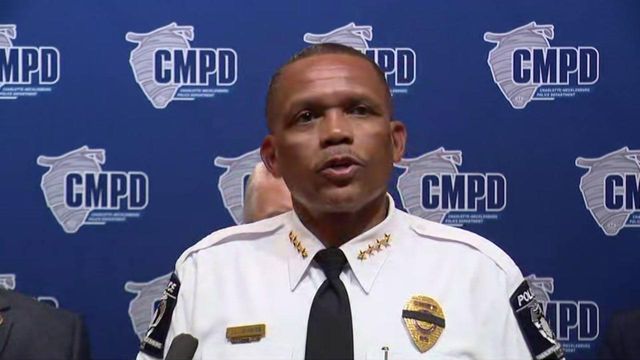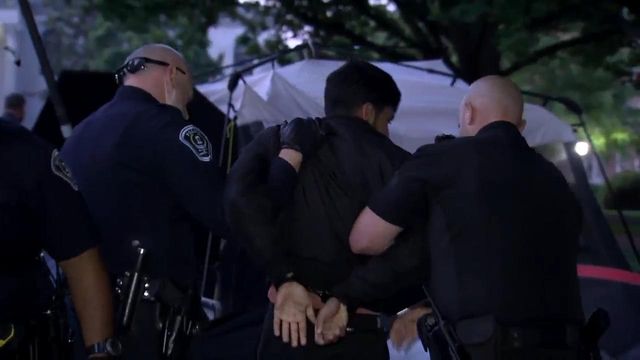NC GOP Senate candidates tangle over education, 2020 election results

Three of North Carolina’s top Republican Senate candidates outlined what they would do to tackle student debt and how they believe racism should be taught in K-12 schools during an hour-long debate Wednesday. They also weighed in on the 2020 election, influence of outside spending in the race and whether they’d support the party’s nominee.
Former Gov. Pat McCrory, former U.S. Rep. Mark Walker and Army combat veteran Marjorie K. Eastman are seeking to fill the seat of retiring U.S. Sen. Richard Burr. They faced off for an hour Wednesday in the third debate of this year’s primary season.
The frontrunner in the primary race, U.S. Rep. Ted Budd, who has been avoiding debates in this race, was a no-show again. It was his third such absence. Jonathan Felts, a Budd adviser, said the congressman attended events in Montgomery, Richmond, Scotland and Hoke counties on Wednesday rather than attend the debate.
Here are three takeaways from the Spectrum News event:
1. CRT, student debt draw mixed views. McCrory, Budd’s top primary opponent, blamed colleges and universities for rising education costs. He urged campuses to lower tuition rates and said the federal government should make sure schools receive federal dollars based on a student’s ability to get a job that allows them to pay for their degree
“Any future money in education needs to be targeted to where kids and adults can get jobs,” McCrory said.
The former governor also pushed back on ads he considers misleading, including one released on Wednesday by a Washington, D.C., political action committee that claimed he supported Democrats on the state’s textbook commission while he was in office from 2012 to 2016.
State law dictates the members be appointed by the governor upon recommendation of the state superintendent of public instruction. Democrat June St. Clair Atkinson held the elected office for the entirety of McCrory’s tenure.
McCrory in the debate said the group, Club for Growth Action, was “lying about my record on CRT,” a reference to critical race theory, a high-level academic framework for thinking about America’s history through the lens of racism. The term has become somewhat of a catchall phrase to describe racial concepts some conservatives find objectionable.
Walker said that his family has been personally impacted by the issue.
“I’ve got a daughter in high school and one in college,” Walker said. “I see some of the propaganda that’s trying to be implemented into their own studies.”
In a briefing with reporters after the debate, Walker said his high school daughter, a sophomore, had an instructor who he says tried to make the case that because the student came from a white and privileged background that she should take a back seat to someone of lesser means.
“Can I tie that directly that that’s part of the CRT curriculum that’s being taught in our college and master’s levels? No. But it’s the overall idea that is against what Martin Luther King Jr. pushed: that we should not be judged on the color of our skin but on the content of our character,” Walker said.
Eastman, a Cary mother of a younger child in school, could not identify a specific example of CRT being taught inside a classroom but said “parents deserve to have a voice” in how their children are being taught.
On the issue of college affordability, Walker and Eastman referenced programs for aspiring teachers and military members that covers or helps cover college tuition expenses.
Walker, a former Greensboro-area congressman, said in the debate that he wouldn’t rule out the idea of certain student loans being forgiven for a narrow group of people who have served in the community. He said he opposes broader student bailouts that would ultimately be paid for by U.S. taxpayers.
Walker said after the debate that he and his wife accrued more than $20,000 in student loan debt after his wife went to graduate school at Winston-Salem State University while he was working as a pastor. He said Budd, who had worked early in his adult life under his family’s agriculture business, couldn’t relate to voters of humbler origins.
“It’s one of the reasons that makes me relatable to people who are in this environment.” Walker told reporters. “Unlike Mr. Budd, my dad doesn’t have millions of dollars. I’m not a trust fund baby. I’m somebody that had to go out there and work hard, both my wife and I. We appreciate these kitchen-table issues that families across North Carolina are working through.”
Jonathan Felts, an adviser to Budd, said building a successful business shouldn’t be a point of criticism, and that Walker’s comment “is something I’d expect from someone running in a Democratic primary, not a Republican primary.”
“It’s almost as if Mark Walker doesn’t know what he stands for anymore,” Felts said in a statement.
2. Candidates tangle over 2020 results, support for 2022 GOP nominee. McCrory and Walker said they’d support whichever Republican emerged victorious from the May 17 primary election. Eastman declined to commit to supporting the eventual nominee and noted she had strong policy differences with Budd.
“This is a family feud that’s not good,” Eastman said. “It’s going to be really hard to come back together."
When pressed for an answer in the debate, she said she believes in a conservative party.
Felts said Budd would support the Republican nominee.
When asked about their attitudes on the 2020 election, McCrory and Eastman acknowledged President Joe Biden’s victory over then-President Donald Trump. Walker did as well, but offered a hedge.
"I don’t believe [the election] was stolen, but I don’t believe it was fair and square at the same time because of the discrepancies,” Walker said before expressing concerns with the expanded use of mail-in voting due to the pandemic.
A WRAL News online survey of 2,068 registered North Carolina voters this month showed 69% of respondents with at least some confidence their ballot for the primary would be counted accurately. One in four Republicans had full confidence their vote would be counted accurately, while 38% said they had some confidence in it being properly recorded.
Most respondents, including 71% of registered Republicans and a plurality of registered Democrats, said they’d support a proposal to require mail-in ballots arrive by Election Day.
The poll, conducted from April 6 to 10, reported a margin of error of 2.7 percentage points.
3. Outside spending under scrutiny. All candidates took aim at Club for Growth, the influential political action committee that has vowed to spend at least $14 million to boost Budd.
“We have too many people right now who are trying to buy and steal this election,” Eastman said.
Walker criticized the group’s president, David McIntosh by name, while McCrory said he doesn’t believe voters would ultimately fall for ads he considers deceptive.
“We have too many people right now who are trying to buy and steal this election through a third-party group that’s playing deceitful, lying ads trying to buy your vote,” McCrory said. “This seat isn’t for sale and neither am I.”
Joe Kildea, a spokesman for Club for Growth, responded with a statement questioning McCrory’s track record and touting high-profile endorsements Budd has received from Trump and Lt. Gov. Mark Robinson.











